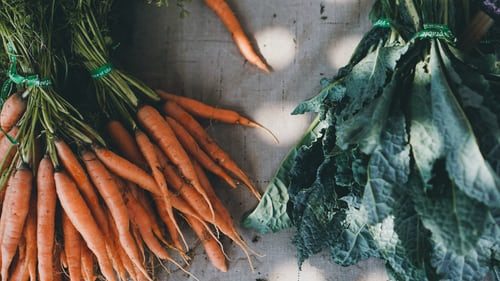Every time you turn around, there’s something new that you MUST use to be your healthiest. Sometimes, all the hype is real, but unfortunately sometimes it’s not and you spend more money for no benefits. Is that true of organic food? Is it worth paying a higher the price? The answer is yes and no. Not all commercially non-organic food has pesticides and contaminants. Onions, for example, are on the Clean 15 list for 2022, which means non-organic have few if any contaminant residue.
What is organic and why is it important?
If you’re discussing fruits and vegetables, organically grown ones use no artificial pesticides or synthetic fertilizer. They don’t use sewage sludge, ionizing radiation or genetic modification. Animal products that are organic take no antibiotic or growth hormones. Most are free-range and grass fed. That means they aren’t kept in a cage or stall and allowed to eat what Mother Nature provides like plants or in the case of chickens, buts and other natural foods.
You don’t have to spend extra for the Clean 15 foods.
Buy non-organic for foods like avocado, sweet corn, pineapple and onion. They’re at the top of Clean 15 list created after research by the EWG—Environmental Working Group. They tested samples of non-organic fruits and vegetables across the country, even after washing and peeling, to see which ones have the most pesticides. The ones with the most pesticides made the Dirty Dozen list and the ones with the least made the Clean 15, which means choosing non-organic is just as good as organic.
Organic foods can provide more nutrients and benefits.
If you’re consuming organic fruits and vegetables, you’ll get increased amount of trace minerals and nutrients. There are several reasons for this, but the main reason is that organic farmers don’t simply use a combination of nitrogen, phosphorus and potassium like factory farms do, but use decomposed organic material that contains all these trace minerals and nutrient. Animals, particularly cows, that are allowed to graze also have a different diet, which makes products from grass fed cows higher in nutrients, like omega3 and linoleic acid that are heart healthy.
- Other produce on the Clean 15 list, besides avocado, onion, sweet corn and pineapple, already mentioned, include papaya, kiwi, cabbage, frozen Sweet Peas, asparagus, mushrooms, mango, cantaloupes, watermelon and sweet potato.
- Organic farming produces food that is healthier for you, but also better for the environment. The practices of organic farmers replenish the land, while also providing more humane treatment for their animals.
- In order for a farmer to label his food organic, it can’t be GMO and the land must be free of synthetic fertilizer and pesticides for a minimum of three years. For packaged products, there can be no artificial flavors, colors or preservatives used.
- Studies show the nutritional content of non-organic compared to organic food is different with organic food containing more nutrition. Heirloom varieties of fruits and vegetables also are generally more nutritious.
For more information, contact us today at Targeted Nutrition Technologies

